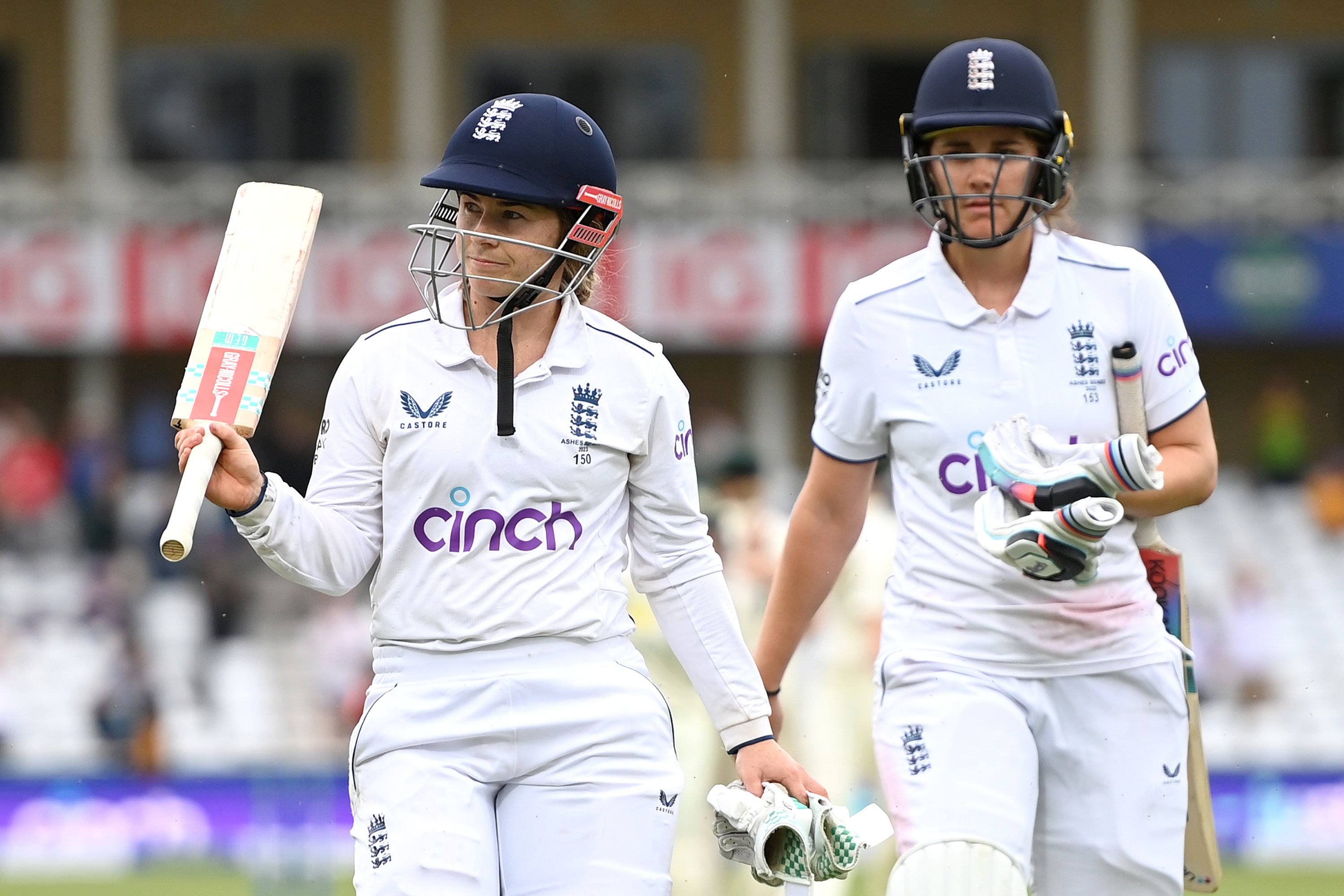Racism and sexism in cricket ‘widespread and deeply rooted’, report finds
The Independent Commission for Equity in Cricket found 87 per cent of people with Pakistani and Bangladeshi heritage have experienced racism within the game, while women are treated as ‘second-class citizens’
Your support helps us to tell the story
From reproductive rights to climate change to Big Tech, The Independent is on the ground when the story is developing. Whether it's investigating the financials of Elon Musk's pro-Trump PAC or producing our latest documentary, 'The A Word', which shines a light on the American women fighting for reproductive rights, we know how important it is to parse out the facts from the messaging.
At such a critical moment in US history, we need reporters on the ground. Your donation allows us to keep sending journalists to speak to both sides of the story.
The Independent is trusted by Americans across the entire political spectrum. And unlike many other quality news outlets, we choose not to lock Americans out of our reporting and analysis with paywalls. We believe quality journalism should be available to everyone, paid for by those who can afford it.
Your support makes all the difference.Racism, sexism, elitism and class-based discrimination are “widespread and deeply rooted” in cricket, a damning report into equality within the sport has concluded.
The Independent Commission for Equity in Cricket (ICEC) report took in evidence from more than 4,000 people and found one in two had experienced discrimination within the game in the past five years. The figures were substantially higher for people from ethnically diverse communities, including 87 per cent of respondents with Pakistani and Bangladeshi heritage.
Richard Thompson, the chair of the England and Wales Cricket Board (ECB), has apologised and vowed to “use this moment to reset cricket” after the report concluded the game’s existing structures led to discrimination and racial disparities.
The report found:
- Eighty-seven per cent of people with Pakistani and Bangladeshi heritage, 82 per cent of people with Indian heritage and 75 per cent of all Black respondents experienced discrimination within cricket
- Women are “subordinate” to men within cricket and treated as “second-class citizens”, routinely experiencing misogyny and finding themselves marginalised in the sport
- “Substantial cost barriers” prevent people from lower socioeconomic groups from participating in the game, with little to no action being taken to address the dominance of private schools in the pathway into cricket
- Three-quarters of those who experienced racism and wider discrimination did not report it to cricket authorities, with the report finding mistrust from victims and those accused of discrimination. The report said the complaints system was “not fit for purpose”
“Our findings are unequivocal,” said Cindy Butts, chair of the ICEC. “Racism, class-based discrimination, elitism and sexism are widespread and deep-rooted. The game must face up to the fact that it’s not banter or just a few bad apples. Discrimination is both overt and baked into the structures and processes within cricket.
“The stark reality is cricket is not a game for everyone.”

The long-awaited Holding Up A Mirror To Cricket report was commissioned by the ECB in November 2020, in the wake of Azeem Rafiq detailing his experience of alleged “institutional racism” at Yorkshire County Cricket Club.
The report’s publication was twice delayed after the ICEC said it would be released in the autumn of 2022 before later saying it would be out in early 2023, and comes a day before the start of the second Ashes Test between England and Australia at Lord’s.
The report made 44 recommendations, with a call for the ECB to make a public apology listed as an “essential first step”.
Other recommendations included a demand for an overhaul of the pay structure in the women’s professional game: the report found “credible evidence” that the average salary for an England women’s player was an “embarrassingly small” 20 per cent of that for a men’s player. The revelation comes as England hosts the multi-format Women’s Ashes this summer.
Ms Butts added: “Whilst there has been commendable and significant progress in the women’s game, women continue to be treated as second-class citizens with unequal access, pay and treatment. The England Women’s team are yet to play a Test Match at Lord’s, the home of cricket!

“Eighty-seven per cent of Pakistani and Bangladeshi respondents, 82 per cent of Indian respondents and 75 per cent of black respondents to our survey told us they have experienced discrimination, which is simply unacceptable.
“If you attend a state school, you’re less likely to have access to cricket and have the same opportunity to progress in the game as your private school peers. For those who do ‘make it’ we were saddened to hear they were sometimes subjected to class-based discrimination. Cricket needs to urgently level the playing field.”
In response to the report, ECB chair Mr Thompson thanked the ICEC for “holding up an unfiltered mirror to all cricket in England and Wales” as he said the findings made for “deeply uncomfortable reading for all of those who love the game”. He added the report must be a “wake-up call” for cricket.
In an open letter to the ICEC chair, Mr Thompson said: “The findings of your report, based on over 4,000 contributions from those involved in cricket at all levels, speak for themselves. Cricket should never exclude anyone on the basis of their ethnicity, gender or social background. We apologise unreservedly for these experiences and are thankful for the courage of those who have shared them with the ICEC, whilst recognising there will be many more who felt unable to give their accounts.
“Your report spells out the stark need to address discrimination across cricket, recognising the pain and exclusion this has caused. I am determined that this wake-up call for cricket in England and Wales must not be wasted. It is our job to demonstrate that it is a game for all and we have a duty to put this right for current and future generations.
“We will use this moment to reset cricket. This cannot and will not be a quick fix – we must take the time to put in place meaningful structural reforms. As your report rightly points out, cricket has been here before. This time our response will be different. Our response must be wide-ranging and long-term.”
Join our commenting forum
Join thought-provoking conversations, follow other Independent readers and see their replies
Comments